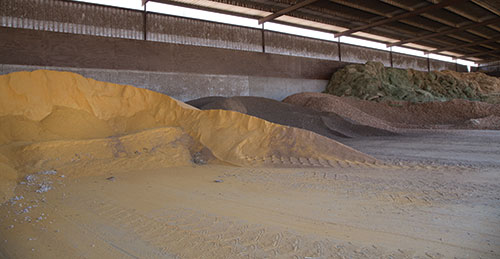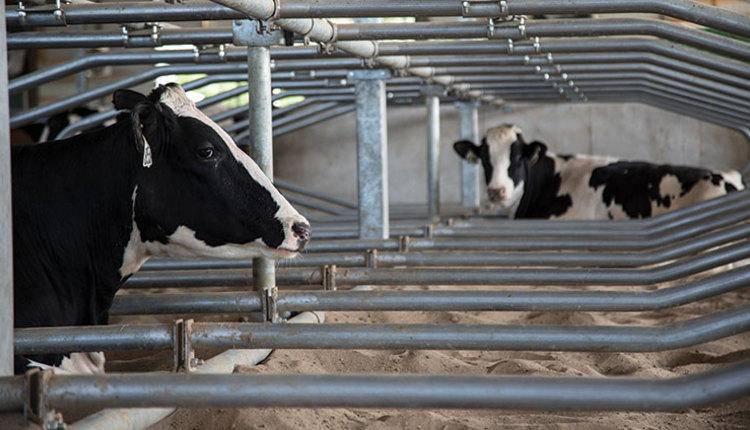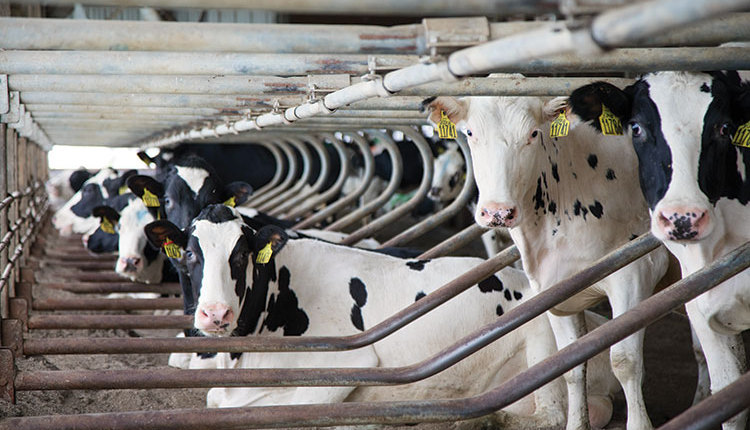
It never fails; when my wife and I go on a road trip, she invariably must first stop to gas up her truck because the tank is at empty and “running on fumes.” I, on the other hand, cannot bear to let a gas gauge get below half. My vet rig’s gas tank is usually three-quarters full or more, ready to go on an extended trip at any moment.
The other day at one of my dairies, my colleague texted me that she was running late because she woke up and found her truck gas gauge was at empty. She later admitted that she was a “running on fumes” sort of person, while her husband tended to keep the tank topped off, as I do.
I spent the rest of the morning’s herd health visit doing an informal survey of the people around me. Based on my results, I conclude that there are two broad categories of people: those who keep the tank near full for peace of mind, and those who let it run low and see how frantic the digital mileage warning alert can get before stopping at the pump. This revelation inspired me to examine what positive and negative effects these two personality types may have on the dairy.
Carefully buy in bulkWhere on the dairy might it be desirable to “run on fumes,” and where do we want to “keep a full tank,” so to speak? Any management area that keeps an inventory is ripe for investigation. Unless we are careful, the farm drug room often has too much of one thing and not enough of another. A well-managed drug inventory and stockroom benefits both your livestock and the bottom line.
Medicines that have a rapid turnover should be kept in the “full tank” state. Intravenous calcium and magnesium solutions, both life-saving therapies, are something you don’t want to buy just a few bottles at a time. Try to anticipate episodes of elevated need, such as a rush of calvings. Calcium solutions, steroids, and flunixin meglumine, in my opinion, are essential medications you should never run out of or even be short of. Epinephrine (or adrenaline) is another; the very next vaccination you give may cause a life-threatening anaphylaxis that adrenaline can cure.
On the other hand, perishable biologicals with a short lifespan, such as some vaccines and hormones, may be best stocked in volumes close to the “fumes” range, so that we don’t have excess product that gets beyond the expiration date or experiences temperature extremes and is wasted and unusable.
It can be hard to resist a sale or bargain, but strongly consider the “fume or full factor” of the product before purchase. For example, if the route truck has a sale on close-dated tetracycline, be warned that this drug becomes toxic when used beyond the expiration date. Take the time to pencil out the likely usage rate versus the effective lifespan. Buying some medicines on sale or at bulk discount may instead end up being false economy.
Determine the urgencyCertain tasks benefit from being assigned to “full or fume” categories. Important, nonurgent jobs are best planned well ahead and given ample, dedicated time to complete. Tasks that can “run on empty” are those quickly accomplished as time allows and tend to be urgent but relatively unimportant.
In my decades of practice, I’ve come to discover that when dairymen exclaim, “While you’re here, Doc,” it can mean a job that ranges widely in urgency and time. Some fit the class of “full” and are best deferred to a scheduled day, while others are “fumes,” diagnosed at a glance and resolved quickly.
Mineral supplementation is another area where I find dairymen, understandably due to the expense, may choose to “run on fumes,” buying loads by the week. This practice brings the risk of running out of supplement.
One could rationalize that the importance of not running short depends upon the mineral. Milking cow mineral, considered by many to be overfed, could conceivably be absent from an otherwise balanced ration for a day or two without obvious, immediate negative effects. The long-term effects, however, can lead to poor reproduction and immune suppression.
The best way to supplement mineral with precision is to perform a liver tissue biopsy and analysis to determine body mineral levels. If you are walking a fine line between adequate levels and deficiency, running out of mineral for a few days may have a more noticeable effect, such as creating midlactation milk fevers, than if cows are oversupplemented.
Shorting close-up and dry cows on mineral, however, especially those containing anionic salts, is asking for trouble. Cows respond quite quickly to changes in DCAD; urine pH can rise and fall within hours. “Running on fumes” with anionic salts will encourage clinical milk fever and consequences of subclinical low calcium such as metritis, retained placenta, and mastitis. As with IV calcium solutions, salts are stable and unlikely to “go bad.” Keep a close eye on their inventory so you don’t get “stuck by the side of the road.”
Don’t be left empty-handedAdequate feed inventories are of great importance to keep a dairy moving efficiently and profitably. Running out of feed may force you to negotiate on unfavorable terms, likely paying more for poorer quality.
It is not just feed, but what feed produces that may also need to be inventoried. While it can be problematic in more humid climates, here in the arid West, it is common and economical to bed cows with composted manure solids. While I found it hard to believe at the time, I actually had a freestall client run out of dry, composted bedding during the winter. This forced the farm to delay stall grooming and bedding replacement, resulting in dirty, wet stalls that inevitably raised somatic cell counts and mastitis rates.
Be assured that veterinarians are also prone to the failings of running on fumes. I recall accompanying an ambulatory clinician on a remote calving visit as a student. The cow required a Cesarean section, and we students readily accomplished the task of casting and roping the cow, and clipping and scrubbing her flank in preparation for surgery.
Unfortunately, when we opened the surgery “grip” to begin the local anesthetic block, we discovered that we had neglected to restock the kit with lidocaine. My professor vented a string of rather unprofessional words that ring in my ears to this day. After driving many miles back to the clinic to restock, the surgery was successfully performed. Ever since, I compulsively double and triple check my surgical supply stores to ensure I have enough lidocaine, surgical gloves, and suture.
It is difficult to change our basic natures. We may be frugal or spendthrifts, type A extroverts or type B introverts, or “run on fumes” or the full-tank type. By recognizing which “type” we are, we can attempt to modify our behaviors and reap beneficial results. Should you be either a full-tank planner or a “running on fumes” adventurist, consider selectively adopting the ideal management style in the areas I’ve discussed. Your dairy may benefit by having fewer episodes of “hitchhiking to the gas station.”









